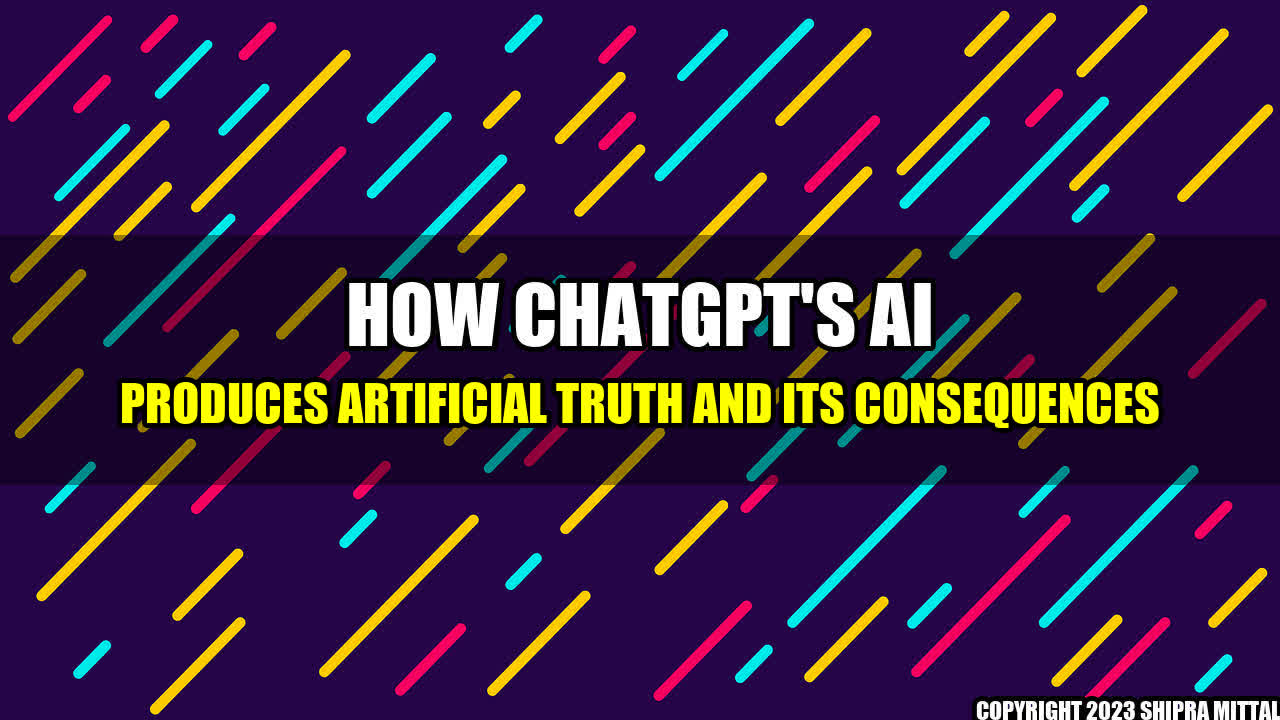When Mariana first used ChatGPT's AI technology to write content for her website, she was amazed at how well it worked. The articles were well-written, informative, and most importantly, engaging. However, Mariana soon realized that the AI was not simply answering her questions to the best of its ability, but was producing a version of the truth that was entirely artificial.
ChatGPT's AI technology uses natural language processing and machine learning algorithms to generate human-like responses to natural language queries. It has the capability to synthesize large volumes of data into coherent and compelling narratives that can be difficult to distinguish from those written by human authors. However, this technology has given rise to a new problem, which is the regulation of artificial truth.
One of the most significant challenges is the possibility of inadvertently replicating biased or incomplete facts, especially when training the AI. For example, the AI may be trained on datasets that are already biased, leading to further propagation of prejudiced information. If not identified and mitigated, it can perpetuate misinformation and amplify threatening opinions, leading to social and political conflict.
Despite these worries, both public and private organizations are embracing ChatGPT's AI technology for various applications. Major companies such as Google, Facebook, and Amazon are using AI to prioritize news feeds, customer service, and marketing campaigns based on users' interests and preferences. These companies are constantly training their AI with new data to ensure that it remains unbiased and accurate.
Moreover, AI also assists scientific research in solving common problems in a short time. In addition to this, AI technologies can replicate human behavior in simulations to study complex phenomena without putting humans at risk. By using AI in these situations, scientists can save time and money while still getting accurate results.
In conclusion, while we may still be in the early stages of AI technology, it has already had a significant impact on society - both positive and negative. It is up to companies and governments to ensure that AI technology is used in a responsible and fair manner that truly benefits everyone.

Akash Mittal Tech Article
Share on Twitter Share on LinkedIn